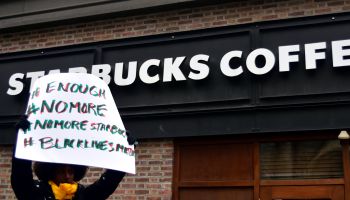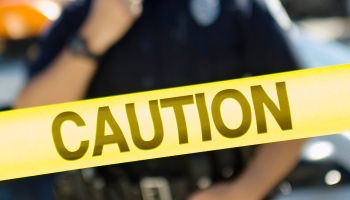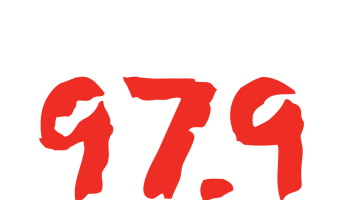Many folks will have woken up Tuesday morning, showered, gotten dressed and instinctively darted off to their neighborhood Starbucks for their mocha latte venti caramel drizzle decaf special, only to find their prized stores to be closed.
But fear not! By Wednesday, those same stores will be back open and fully staffed by a newly deprogrammed fleet of baristas and managers who will have successfully completed the expertly fool-proof methods for ridding themselves of any and every implicit racial bias they may have had just 24 hours earlier.
At least that’s how it’s supposed to work.
RELATED: The Starbucks Conundrum: How America Loves And Fears Black Culture
About 8,000 Starbucks stores were expected to close Tuesday to conduct the symbolic move of training their employees not to call police on Black people sitting one of the many coffee shops that can be found pretty much anywhere across the country.
In case anybody forgot the unforgettable, the move was coming in response to last month’s egregious case of racial profiling when a white employee at a Starbucks in Philadelphia called police on two Black men for being alive on the premises. The entire episode was recorded on a video that has since gone viral and clearly still has the company in serious damage control mode. Protests and boycotts ensued, forcing the company CEO to make a number of symbolic gestures toward the peaceful victims, including offering a quick formal apology, something that is typically unheard of in the seemingly millions of similar cases that have happened before as well as after the Starbucks fiasco.
Starbucks has tried, unsuccessfully, to simmer the bubbling racism among its workers, but now the company is giving it another go. Here’s what its workers can expect to “learn” during Tuesday’s anti-bias training.
Some words of wisdom were expected to be shared by Common, who’s become more of an activist than a rapper as of late, as well as some of the top Starbucks chiefs. The remarks, all delivered via recorded message, will precede a four-hour session informing the workers “on the history of civil rights from the 1960s to present day, according to the Associated Press.
If that sounds overly simplistic, it’s because it is. There’s probably no way four hours of information-cramming can rid someone of the subliminal hate they hate for someone who doesn’t look like them. It could even exacerbate the existing bias and turn that into full-on hate.
“We find that oftentimes diversity training has mixed effects, and in some cases it can even backfire and lead people who are kind of already reactive to these issues to become even more polarized,” Calvin Lai, an assistant professor of psychological and brain sciences at Washington University in St. Louis, told the AP.
At the end of the day, not literally, there has already been some good that’s already come out of this ugly ordeal: The two racially profiled Black men who were arrested in Philadelphia for simply having a pulse struck a deal with the city to create a program worth $200,000 to help young entrepreneurs.
Ironically, it is that type of approach that could prove to be the most fruitful, as that program was expected to last, as opposed to the anti-bias training.
“We have really made it clear that one training is not enough, and this needs to be part of an ongoing review of their policies,” Heather McGhee, president of social advocacy organization Demos, told the AP. “They really need to commit.”
SEE ALSO:
Starbucks Boycott Should Be Easy For Black Folks
How Starbucks Should Confront Its Past Racism
Here’s What Starbucks’ Workers Can Expect To ‘Learn’ At Companywide Day Of Anti-Bias Training was originally published on newsone.com














